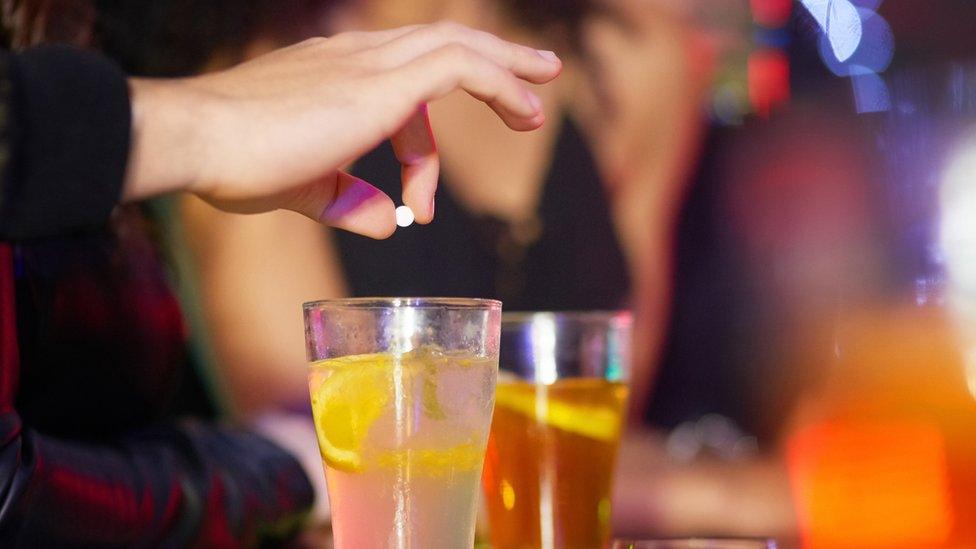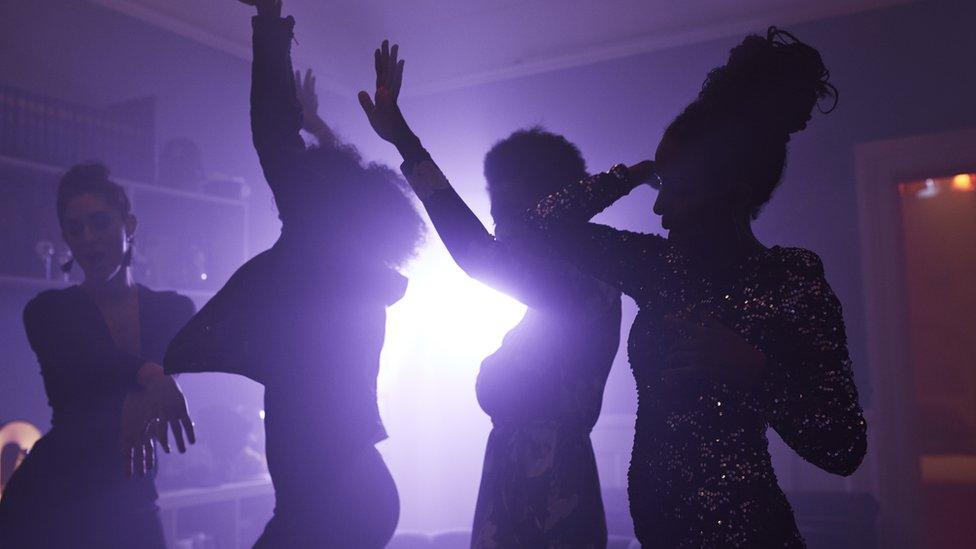New Year 2023: Clubbers urged to report spiking quickly
- Published

Almost 5,000 reports of needle and drink spiking were made to UK police forces over the course of a year
New Year partygoers are being urged to report drink and needle-spiking as quickly as possible.
Almost 5,000 reports of needle and drink spiking were made to UK police forces over the course of a year.
As drugs pass through our bodies so quickly it is hard to collect evidence and prosecute offenders, officers say.
Their advice is to report suspected spiking and get tested - even if you've knowingly taken something earlier in the night.
Spiking is when someone puts alcohol or drugs into another person's drink or body without their consent or knowledge.
As well as drink-spiking, people can also be the victims of needle-spiking, which is injecting someone with drugs without their consent.
It happened to Chloe Ward on a night out in Ipswich.

Chloe Ward, 23, said she had been aware to the dangers of drink-spiking on nights out
The 22-year-old was out at a club when she collapsed and lost consciousness for several hours.
She was seen by paramedics and the next day found a bruise by her hip and a pinprick hole in her jeans.
Although this happened more than a year ago, for Chloe, nights out haven't been the same since.
"I don't enjoy going out any more and it's sad to say that," she says.
"Going out was my idea of having a really good night with friends, forgetting about everything, enjoying the time and making memories.
"It's hard because my friends still go out, but I don't want to, so I'm missing out."

Chloe Ward cannot remember a photo being taken moments after she was spiked
According to figures from the National Police Chiefs' Council (NPCC), 4,924 reports were made to UK police forces in the 12 months to September.
The most common drugs detected were cocaine, ketamine and MDMA, based on 800 tests carried out so far.
However, only 3% of cases were found to "contain a controlled drug which supports a spiking incident".
The most common report was spiking by needle, with 2,581 cases recorded by police, closely followed by drink-spiking at 2,131 cases.
This was a contrast to figures released by Police Scotland at the start of December, which said it had not found any evidence of needle spiking despite a surge in reports.

How to help a friend who's been spiked
According to the charity Drinkaware, if you are with someone who's been spiked the best thing to do is seek medical help straight away.
They also advise the following:
Stay with them and keep talking to them
Call an ambulance if their condition deteriorates
Don't let them go home on their own
Don't let them leave the venue with someone you don't know or trust
If possible, try to prevent them drinking more alcohol as this could lead to more serious problems
Urine and blood tests carried out in the first 24 to 72 hours are most likely to detect drug traces
Source: Drinkaware

Deputy Chief Constable Maggie Blyth is the NPCC lead for Violence Against Women and says forces are doing more to clamp down on the crime.
"We're taking increased action against spiking, with uniformed and covert operations in bars and clubs," she says.
"Behind each of these reports is a frightened victim whose night out has turned into a nightmare.
"I know from talking to victims of spiking how utterly terrifying it can be."


Follow Newsbeat on Twitter, external and YouTube, external.
Listen to Newsbeat live at 12:45 and 17:45 weekdays - or listen back here.
- Published22 October 2021

- Published15 October 2021

- Published7 January 2020
